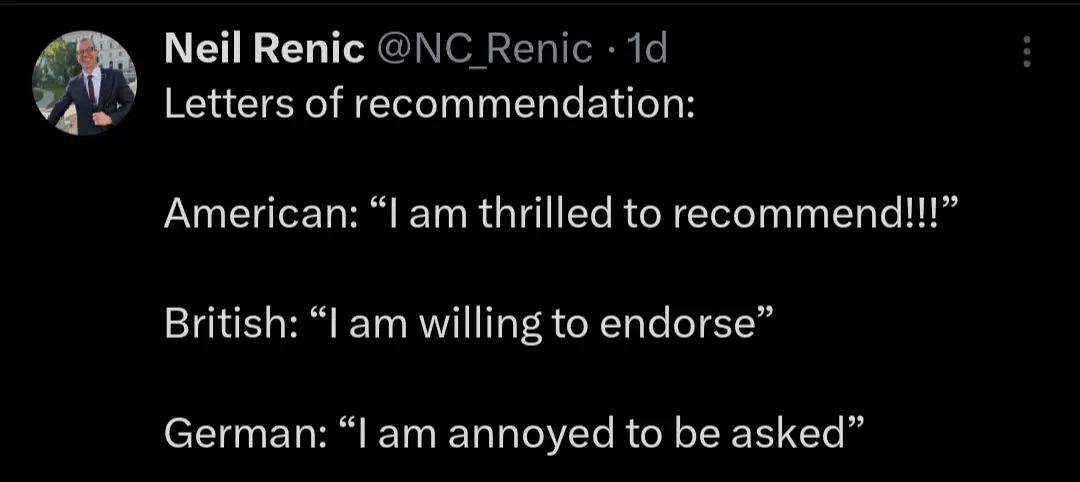You're viewing a single thread.
Germans no doubt have a single compound word for Annoyed-I-Am-Asked-To-Be.
26 0 ReplyTja
24 0 ReplyNo.
But at least for work references, we are legally not allowed to say negative things about an employee, which is kind of bonkers.
12 0 ReplyIt just creates a very specific language of what is mentioned and how emphatically things are expressed and how things are formulated.
We wish him all the best in his future endeavors: he sucks
We wish him continued success in his career: he was a good employee.
We all regret his decision to leave and look forward to maybe work with him in the future: he was an outstanding employee.
29 0 Reply...or it could mean anything else. You don't know which secret code book the author used or if there even was a screening process.
In essence, references are meaningless. They don't contain any useful information.
7 3 ReplyNo, in Germany there is a very specific code.
9 3 ReplyNo, there is not. There literally can't be, because if a "code" would be underhanded criticism, it would be illegal. Simple as that.
So you end up with a bunch of people trying to interpret the codes from both sides, but if they use the same interpretation is impossible to tell.
4 9 ReplyThe code is not written anywhere so good luck suing your employer for "wishing you all the best in your future endeavors".
7 2 Replythere was/is a code and the law also adapted to that lol
3 1 Reply
Contributes to improving the working atmosphere with their sociability: they get drunk at work
3 0 Reply
I'm in the States. My wife was trying to get a new job. Her current job was veeery specific on what they could say. Nothing subjective. Mostly limited to things like attendance and punctuality.
5 0 Reply

